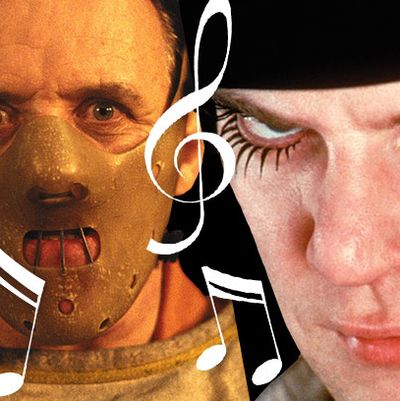
Sometimes, even when bodies are splattering, brows are furrowing, and explosions are flattening entire downtowns, you just can’t be sure a Hollywood villain is truly villainous. Fortunately, screenwriters and music supervisors have a foolproof mechanism for underscoring a bad guy’s evil genius: classical music. Often, it’s a few well-placed bars of “O fortuna” from Carl Orff’s manically apocalyptic choral cantata Carmina Burana laid over juicy, deranged onscreen mayhem (never mind that the text is actually a thirteenth-century Latin whine about the vagaries of fate — a depressive medieval monk’s version of “Luck Be a Lady Tonight”). Sometimes it’s the old Wagner chestnut “Ride of the Valkyries” from Die Walküre, better known as the helicopter attack music in Francis Ford Coppola’s Apocalypse Now. But usually it’s Beethoven. Malcolm McDowell and his droogs turn Symphony No. 9 into “Ode to Rape” in A Clockwork Orange. Gary Oldman professes his love for the composer while shooting people in The Professional. And in White House Down, Beethoven’s Fifth is used to indicate that a hacker isn’t just a hacker — he’s an erudite hacker.
Carmina Burana should be retired from popular culture entirely (especially from movie trailers) and, with White House Down, Hollywood’s allotment of Beethoven has been used up. So what are moviemakers to do when a bad guy needs his onscreen badness amped up with some appropriate classical music?
Well, for starters, there’s always the counterintuitive contrast approach, in which a classical excerpt represents the very civilization that your movie psychopath both savors and destroys. So, for instance, in the famous scene from The Godfather, hitmen pick off the Corleone family’s enemies while Michael presides over his son’s baptism and an organ plays Bach’s somber Passacaglia and Fugue in C minor, BWV 852. (There must be some subliminal connection between Bach and multiple homicide.) We also saw that in Silence of the Lambs, when Hannibal Lecter escapes from his cage, bludgeoning two guards to death in the process, while one of the Goldberg Variations lilts on, unperturbed. Another approach is to use mid-twentieth-century avant-garde, and its love of expressionistic dissonances, as a clue to unspeakable horror. The shrieking string music that gives The Exorcist much of its fearsomeness is the “Night of the Electric Insects” movement from George Crumb’s hallucinatory electric string quartet Black Angels.
But the classical repertoire is an underutilized wellspring of implied evil. Here are a few passages that could adorn hypothetical movie villains, depending on their particular form of nastiness.
Vindictive Victimhood
W.A. Mozart, the Commendatore Scene From Don Giovanni
In the opera’s final act, the statue of a murdered man arrives at the killer’s villa to exact repentance or, failing that, drag him down to hell. The orchestra darkens, strings tremble and ache, and the character of the aggrieved Commendatore intones a trombonelike growl. It’s a moment that would go nicely with histrionic dismemberment.
Fierce Nihilism
Dmitri Shostakovich, “Movement IV (Largo)” From String Quartet No. 8
Shostakovich was sick, depressed, and defeated when he wrote his String Quartet No. 8 in 1960 — he had finally, reluctantly joined the Soviet Communist Party — and he filled the score with lyrical rage. It’s easy to imagine this pained music shuddering through the mind of a man about to unleash unsuspected havoc.
Depraved Desperation
Alban Berg, “Act III Interlude” From Wozzeck
The 1922 opera Wozzeck is about an insignificant man so terminally humiliated that he can only express himself by stabbing his wife and drowning himself. The orchestral interlude builds to an agonized burst (at around 2’50”) that announces the ensuing bloodshed.
Authoritarian Ruthlessness
Giuseppe Verdi, Grand Inquisitor Scene From Don Carlo
There is no more toxic powwow in all of opera than the summit meeting between the guardians of the worldly and spiritual well-being of Spain: King Philip II of Spain and the Grand Inquisitor. When the Inquisitor is announced, Verdi sends the old man shuffling onstage with a march so slow and unbearably ominous that it makes the Darth Vader music seem like a soundtrack for hopscotch. The two aging tyrants egg each other on to depths of basso ferocity that would do Deadwood’s Al Swearengen proud.


